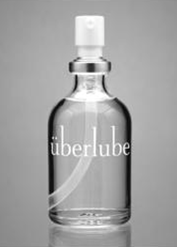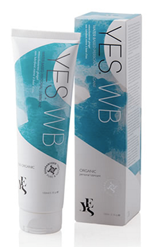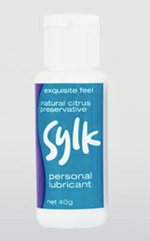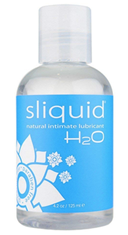4 things you really should know about lubricants
by Tusanee Jierasak, Women's health physiotherapist


Fact 1: Why use a lubricant?
Lubricant is often seen as an accessory, rather than a necessity, but is an important part of sexual wellbeing. Lubricant reduces friction, and makes any activity involving friction more comfortable for a longer amount of time. It not only increases pleasure, comfort, and enjoyment, but can aid in safety by minimizing the risk of internal tears, and helping condoms work better, and making them less likely to break.
A common myth is that arousal always equals adequate natural lubrication, but this is not always the case. Decreased estrogen levels for women at peri or post menopause, post cancer treatment, or post natally, can decrease the natural elasticity and lubrication of the vaginal tissues. This can cause intercourse to be uncomfortable, or painful, and place the quality of the mucous membranes at risk. At all ages, lubricant should be used during intercourse to increase comfort, pleasure, and safety. However, there are things to consider when choosing a lube….
Fact 2: The safety of water based lubricants
How safe your lubricant is depends on pH level and osmolarity.
pH is our measure of acidity or basicity on a scale from 0 – 14. Again for you women, inside the vagina, there is a delicate balance of bacteria, flora and fungi, which regulates the vaginal pH levels and plays an important role in immunity and health of the tissues. Vaginal pH ranges from 3.8 – 4.5 but can fluctuate throughout the menstrual cycle, menopause, or other times of decreased estrogen. Ideally, lubricants pH should match the vaginal pH. If lubricants are too alkaline or acidic, and have a mismatch to the pH levels of the vagina, they can cause symptoms such as stinging, burning, or itching, or disrupt vaginal bacteria and pH leading to yeast infections, UTIs, and bacterial vaginosis.
When it comes to osmolarity, the vagina, vulva, cervix, anus and rectum all have outer layers of mucous membranes that are water soluble. This means the ingredients in water based lubricants can be absorbed, and affect cell structure and function. The osmolality of a lubricant is important to its safety. Put simply, the osmolality is the concentration of a water based lubricant. If a lube has a similar osmolality to the cells and mucus membranes, this is ideal as the pressures are equalized and there is no compromise to the cell's integrity and ability to act as the line of defence against pathogens or infection.
But how do we know what lubes are safe? The key to osmolarity and pH of lubricants is in their list of ingredients. Similar to when we eat well, healthy lubricants should have very few ingredients, and you should be able to pronounce the names of the ingredients. (In the links below is a pdf guide listing the pH and osmolarity ratings of a variety of lubes)
Fact 3: There are ingredients in lubricants to avoid
There are so many lubricants on the market, so read your ingredients and avoid:
- Parabens, glycol, glycerin, petroleum oils
- Any cooling or heating products (such as menthol), scents, or sparkles
- Flavoured lubes are for oral play only, and not to be used vaginally. Their high levels of sugar can produce yeast and can change vaginal bacteria and pH levels.
Fact 4: How to navigate yourself around the types of lubricants


From water based to silicone based, hybrid (a mix of silicone and water based) and oil based, there are pros and cons to each. For choosing the right lubricant and or advice on 'mixing and matching', speak with our women's health/pelvic floor physiotherapists. If you are susceptible to UTIs, thrush or are simply post natal or menopausal, the right advice is here. Every woman and man is different, and their sexual needs, desires and health are unique.
Generally, we suggest that most supermarket lubricants are not great, but there are great lubricants that we carry or can order online. The Fix Program recommends lubricant brands Yes, Uberlube, Sliquid, Sylk, Pjur and Good Clean Love. A good lube will cost more but is one of the best investments you can make for your sexual health.
For more information, check out these great links or ask your contact us to chat with our women's health physiotherapists.
Further resources